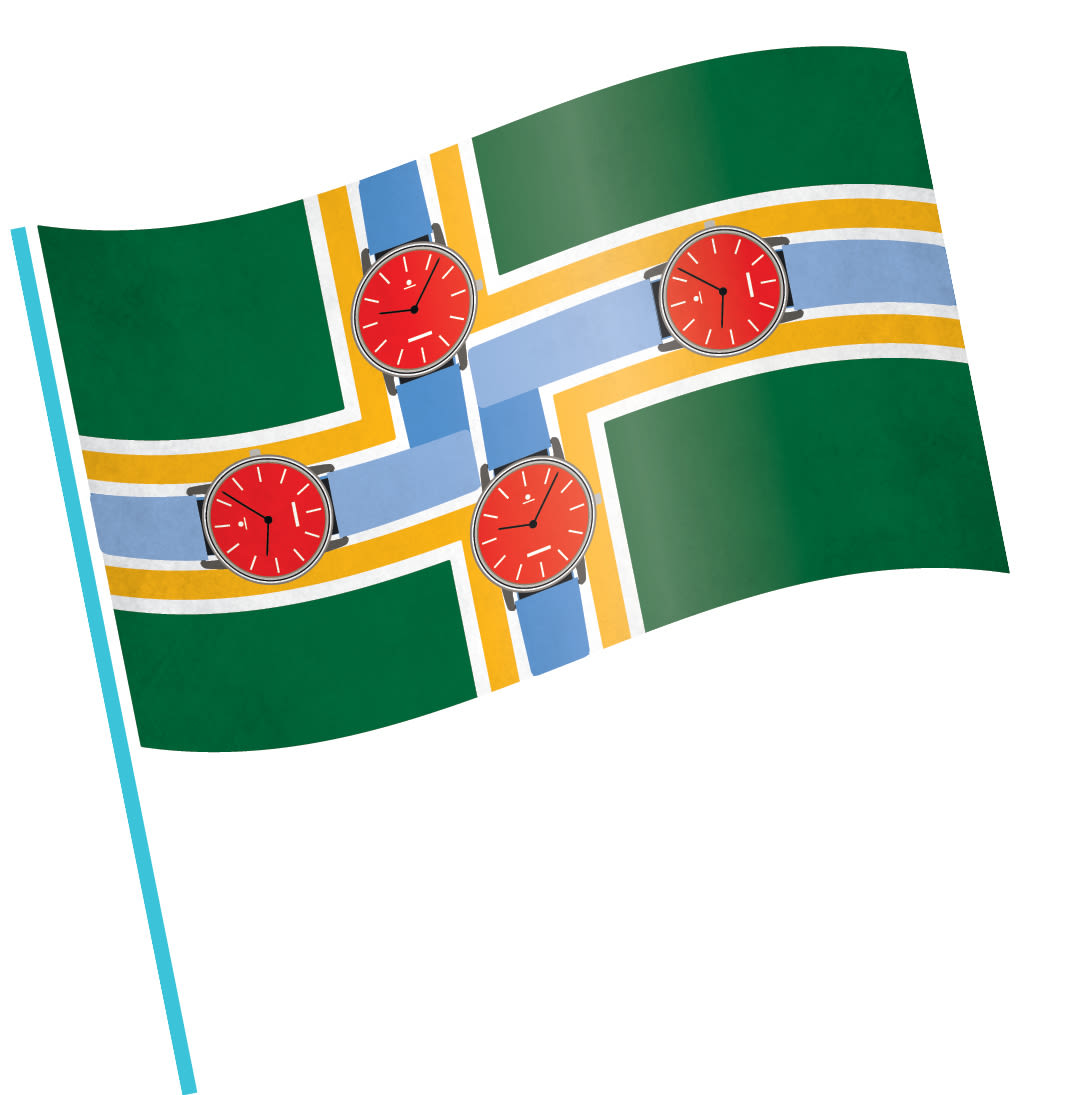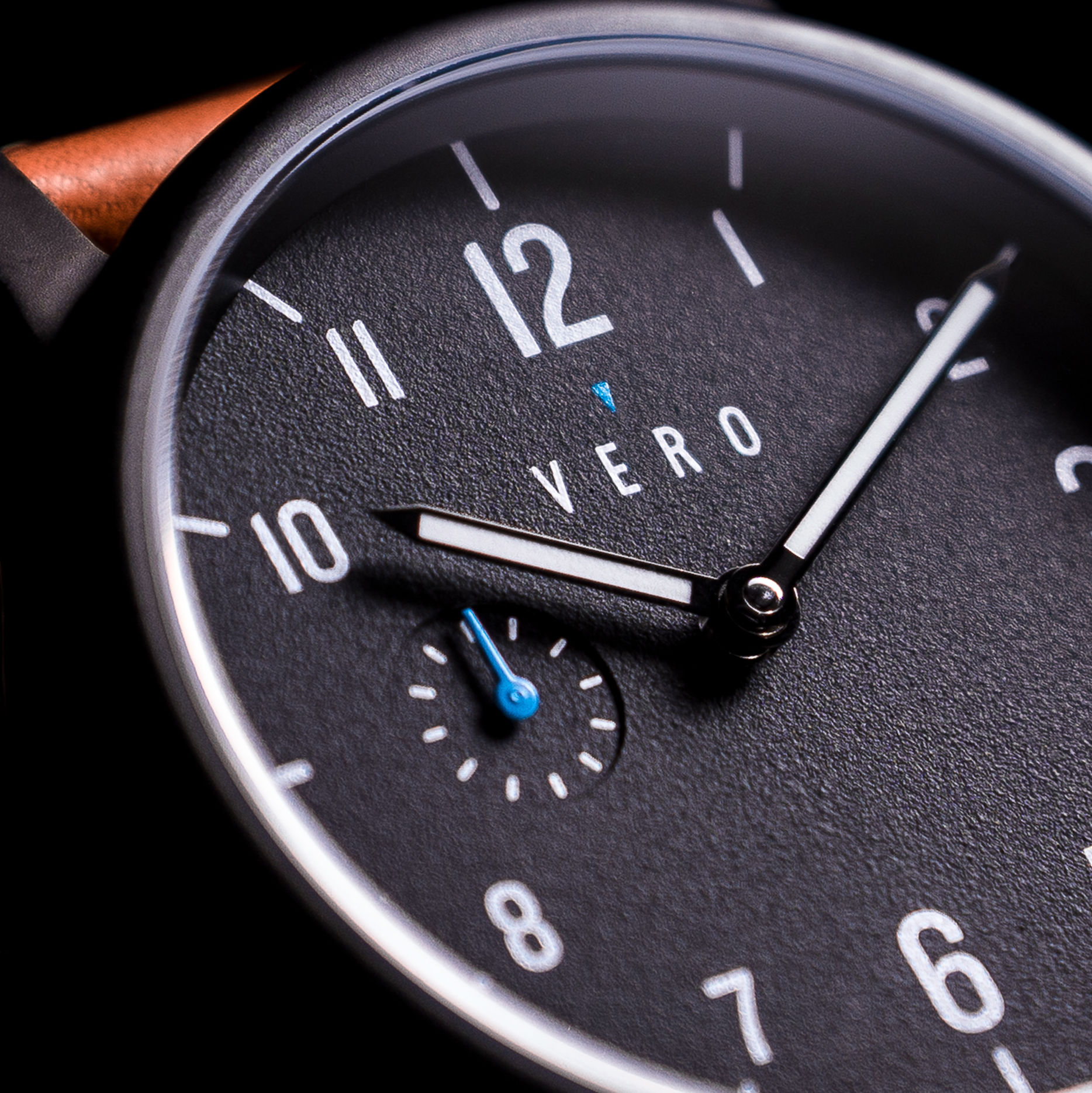Local Watchmaker Vero Scours the World to Make a Portland Timepiece

Vero is on track to produce 200 or 300 watches a year; Rolex makes more than 700,000.
Image: Michael Novak
“A lot of people have bought me a beer to tell me how stupid I am,” says Chris Boudreaux, the cofounder of Vero Watches. “They say, ‘Hey, make your watches in Hong Kong. They would cost a fraction and be just as good.’”
And it does seem a little crazy: Vero, launched in 2015, builds luxury watches—starting retail price $2,900—in a North Portland workshop. The process demands a 3-D printer, machines tuned to exacting tolerances, and painstaking polishing and engraving. The start-up is on track to produce 200 or 300 watches a year; Rolex makes more than 700,000.
This is the way Boudreaux wants it; the 37-year-old retail veteran sees high-end watches not as a cool-gadget project but as the foundation of a brand with intergenerational staying power. “I always wanted to make my own product, and I kept coming back to watches,” he says. “Something you have for life and pass on. If we were just another Kickstarter brand doing everything overseas, we’d be lost in the fog.”
With Vero, he’s trying to scratch-build one of those heritage marks that symbolize not just a product but a relationship. The company is developing extended and insured warranties, and does all repairs in-house. It’s early, but Vero could shape up as a study in American manufacturing revival—if that rings a bell in these turbulent times. The gentleman (probably) sporting the $3,400 VS-DB, on a band by Portland leather company Orox, can brag of his locavore timepiece.
Of course, it’s not quite that simple. Boudreaux discovered that manufacturing decline left the expertise required to build complicated things rare. “There’s not an American-made watch movement,” he notes, of timekeeping’s minute inner gears. “We’re designing our own movement, and we looked for a local machine shop to produce it. The companies in Portland that could are in aerospace and they’re ... they’re busy.”
And so the Vero movement, for now, comes from Switzerland. The hands are French. The company sources sapphires from New Hampshire. For the American-steel casings, Boudreaux tapped an oil-and-gas industry connection in Texas: “One of the older guys in the shop happens to hear and says, ‘Oh, yeah, we used to make watches.’ No one knew! Decades ago, they’d worked for Hamilton.”
Vero orchestrates a nuanced version of the artisanal dream: local roots, international intricacies. In a city that celebrates homespun work, the company’s story is a reminder that hunting, gathering, and making connections are old-time crafts, too.
“We spent two years learning how to make ’em,” Boudreaux says. “We can’t do everything yet, but we do a lot in-house. We aim to be as complete as we can be, and that’s exciting.”









